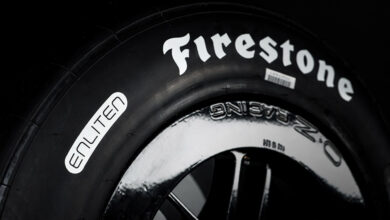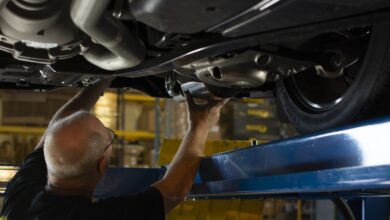A New Approach to Finding Techs

One of the most pressing issues facing specialty performance, restoration and restyling shops today is the need for more technicians. Talented, experienced technicians and installers who are looking for a job do not come around often, as the industry is growing rapidly and the automotive technician career path is losing popularity.
The Search for Techs Today
Yiannimize, a supercar customizing shop in London, is taking appointments for February 2021 – 4 months from now. SS Customs, a similar luxury car customizing shop in Redwood City, California, is doing the same. Despite dramatically increasing the size of their facility earlier this year, they are already full and booking out to 2021.
“The only thing slowing our growth is people,” said Shareef Khan, CEO of SS Customs.
Restoration shops are looking for someone who can jump straight in and start welding. “No babysitting” and “you must have substantial verified industry experience to apply for this job” are phrases I’ve seen commonly included in job postings.
On a recent episode of his podcast, This Week at Yiannimize, Yianni, CEO of Yiannimize, said the following: “Sorry, guys, you’ve got to have experience. We can’t have someone who’s a hard worker and really wants to learn. You’ve got to have experience. The reason I say we need experience is because we need experience.”
Everyone, including Yianni, is demanding experience. But this is a fundamental issue with our industry’s approach to recruiting. How are young aspiring technicians and wrappers going to learn and grow? Who will take over from the 30-plus year veterans of the industry?
We can’t rely solely on new talent who started in their family business, did their training by paying for a class out of pocket or worked at a dealership. We must invest in training.
Training
18 to 25-year-olds with career ambition want to work for the best and most desirable companies. These companies have training programs. I started my career after college at one of these companies. The formal training I received was 90% video, 10% in person, and was roughly 5% effective at teaching me what I needed to know to do my job well.
So where did I learn the other 95% of how to do my job well?
By doing my best, asking questions and working hard. I received tremendous time investment from my bosses, who taught me everything from the most basic and mundane to the complicated and technical. These people took the time to teach me so that they could rely on me to help them. In turn, I helped. I worked hard and grew the business with them. We were all rewarded for our work.
Now ask yourself: what other choice did my bosses have? They could choose to take the time and invest in me so that I could support them with my talents. They could be too busy to invest in me, and I would sit idly waiting for them to handhold me. Or they could refuse to hire me because I didn’t have experience and keep looking for someone who did.
Training creates experienced people. Investment in people creates loyalty. Training is an investment of time from the experienced to the inexperienced, which helps everyone grow and the business succeed.
Making Time for Training
“But I have a backlog of cars, delayed jobs and impatient customers. I need to fill the space from the last tech who left. I don’t have time to train someone,” you might say.
It’s not necessarily a lack of people that created the backlog. It could be your process and organizational design.
Your master tech should allocate at least 50% of their time to training. Your other experienced staff should dedicate at least 25% of their time to training in a growing shop. This creates a trickle-down effect on the knowledge of your techs – the master level teaching goes to those with some experience, and the intermediate level teaching goes to those with little experience.
So, where do you make time for training? There are different solutions available to you depending on the organizational design of your shop.
Is the owner also the master tech? Look at what else the owner is doing besides working on vehicles in the shop. Are they answering emails, dealing with customers and doing parts runs? Your master tech’s knowledge is valuable. If they are spending time taking a customer’s payment, that is not the best use of their knowledge. Training is. Find someone else to take payments and go on parts runs.
Do your techs stay in the workshop? Do they have too many vehicles to work on? Raise your prices. You can afford to take a hit in the volume of demand in exchange for higher profits and less pressure on your techs. With less pressure on your techs, they can take the time to train new staff. Over time, the capacity of your shop will increase as you develop talented and experienced techs.
You will ultimately be rewarded for your investment with a loyal, talented team, smoother, lower pressure process and a growing business.
Search for where you can take back time. Where are you being inefficient, taking on too much work, or putting pressure on your techs? Where can you optimize your process? What tasks can you eliminate, outsource or simplify?
If you demand experience because you don’t have the time to train someone, make the time. In doing so, you’re guaranteeing long-term success for your business and the industry as a whole.



